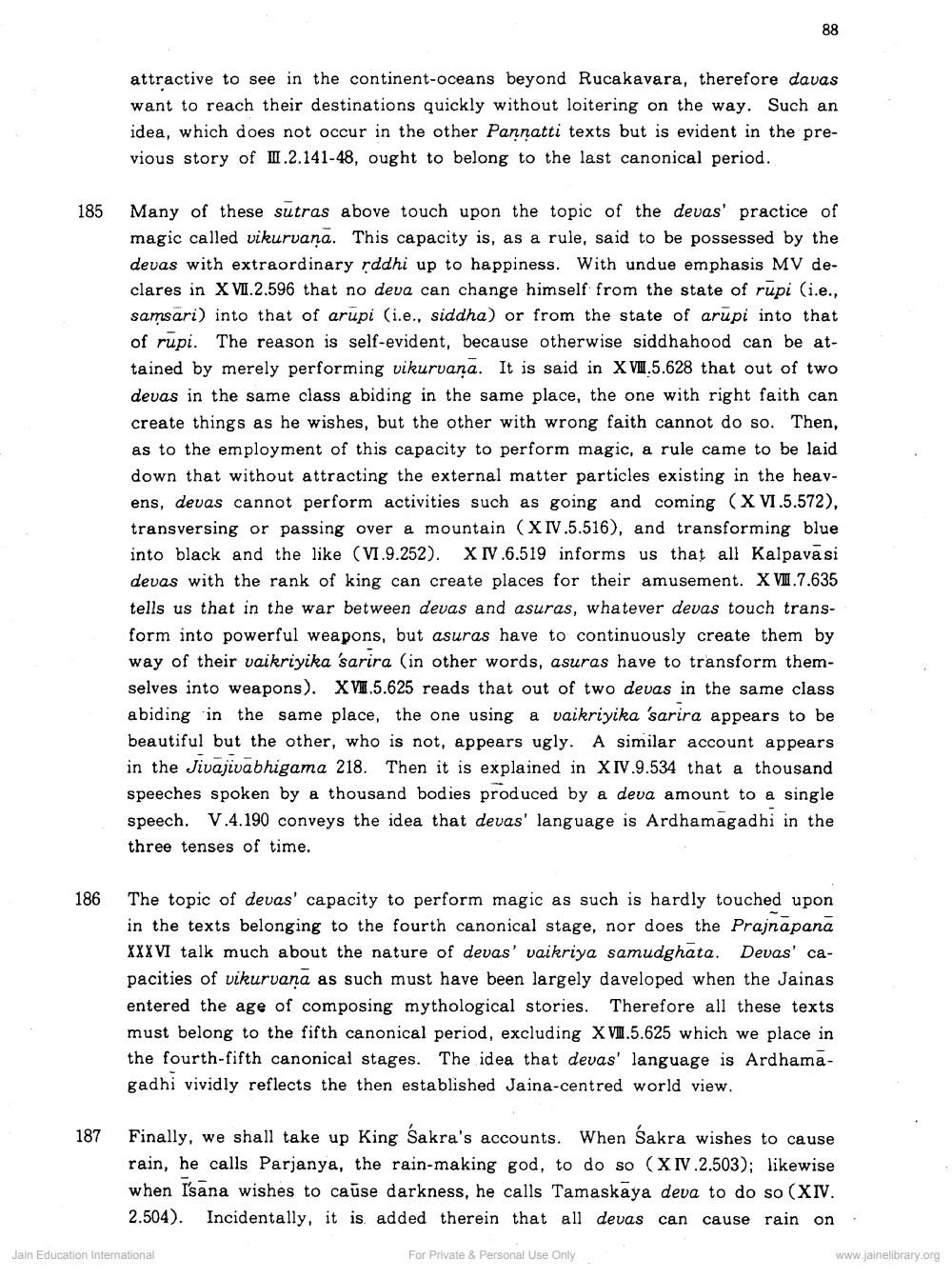________________
88
attractive to see in the continent-oceans beyond Rucakavara, therefore davas want to reach their destinations quickly without loitering on the way. Such an idea, which does not occur in the other Pannatti texts but is evident in the previous story of II.2.141-48, ought to belong to the last canonical period.
185
Many of these sutras above touch upon the topic of the devas' practice of magic called vikurvana. This capacity is, as a rule, said to be possessed by the devas with extraordinary rddhi up to happiness. With undue emphasis MV declares in XVI.2.596 that no deva can change himself from the state of rupi (i.e., samsari) into that of arupi (i.e., siddha) or from the state of arupi into that of rupi. The reason is self-evident, because otherwise siddhahood can be attained by merely performing vikurvana. It is said in X V1.5.628 that out of two devas in the same class abiding in the same place, the one with right faith can create things as he wishes, but the other with wrong faith cannot do so. Then, as to the employment of this capacity to perform magic, a rule came to be laid down that without attracting the external matter particles existing in the heavens, devas cannot perform activities such as going and coming (X V1.5.572), transversing or passing over a mountain (XIV.5.516), and transforming blue into black and the like (V1.9.252). XIV.6.519 informs us that all Kalpava si devas with the rank of king can create places for their amusement. X VII.7.635 tells us that in the war between devas and asuras, whatever devas touch transform into powerful weapons, but asuras have to continuously create them by way of their vaikriyika 'sarira (in other words, asuras have to transform themselves into weapons). X V1.5.625 reads that out of two devas in the same class abiding in the same place, the one using a vaikriyika 'sarira appears to be beautiful but the other, who is not, appears ugly. A similar account appears in the Jivajivabhigama 218. Then it is explained in XIV.9.534 that a thousand speeches spoken by a thousand bodies produced by a deva amount to a single speech. V.4.190 conveys the idea that devas' language is Ardhamagadhi in the three tenses of time.
186
The topic of devas' capacity to perform magic as such is hardly touched upon in the texts belonging to the fourth canonical stage, nor does the Prajnapana XXXVI talk much about the nature of devas' vaikriya samudghata. Devas' capacities of vikurvana as such must have been largely daveloped when the Jainas entered the age of composing mythological stories. Therefore all these texts must belong to the fifth canonical period, excluding X VI.5.625 which we place in the fourth-fifth canonical stages. The idea that devas' language is Ardhamagadhi vividly reflects the then established Jaina-centred world view.
187
Finally, we shall take up King Sakra's accounts. When Sakra wishes to cause rain, he calls Parjanya, the rain-making god, to do so (X IV.2.503); likewise when Isana wishes to cause darkness, he calls Tamaskaya deva to do so (XIV. 2.504). Incidentally, it is added therein that all devas can cause rain on
Jain Education International
For Private & Personal Use Only
www.jainelibrary.org




